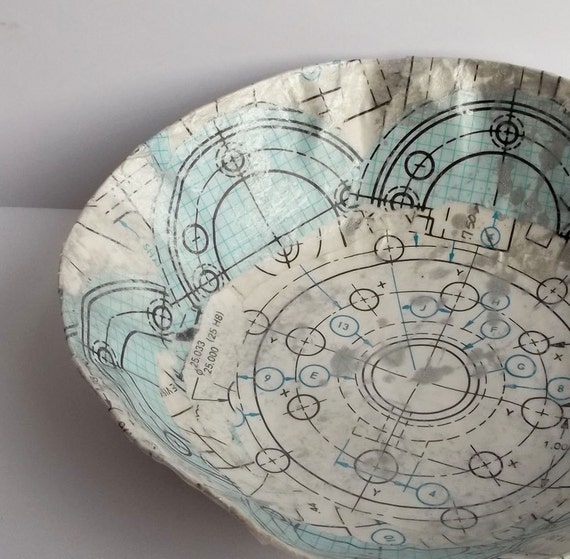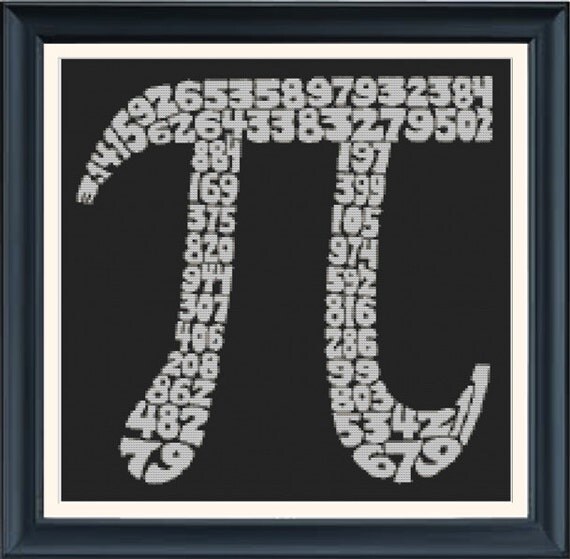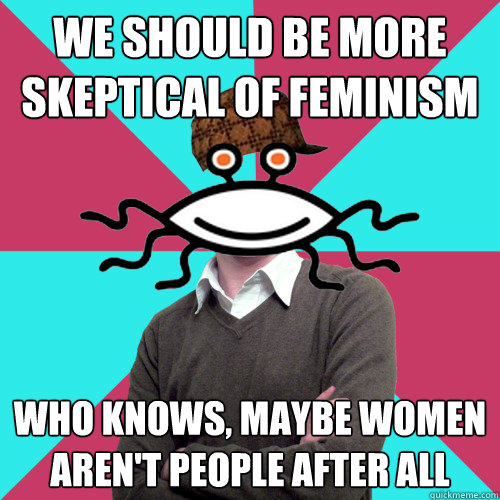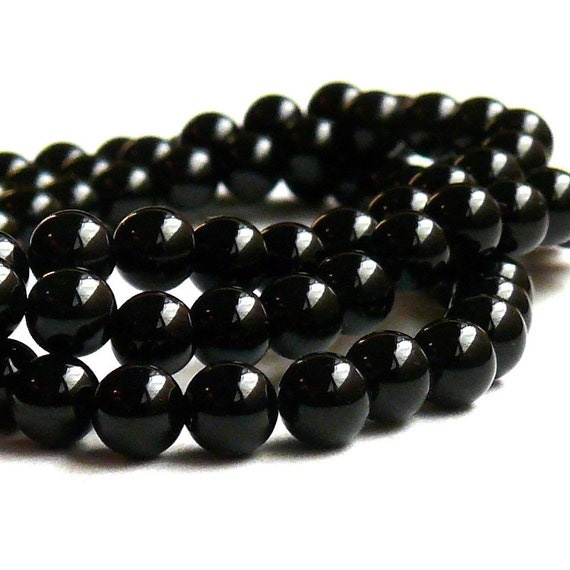My friend Jillian linked me to this:
Coefficient of Friction For Skin: The Incredible Hulk
Enjoy that light reading, y'all.
Saturday, March 31, 2012
Tuesday, March 27, 2012
Music Monday (On Tuesday): William Shatner
Whenever I'm in a bad mood (like right now), nothing quite takes the edge off like Ben Folds.
Unless it's Ben Folds performing with William Shatner (and Joe Jackson).
Unless it's Ben Folds performing with William Shatner (and Joe Jackson).
Saturday, March 24, 2012
Why "The Hunger Games" Isn't a Very Good Book
Since The Hunger Games is apparently in theaters now (or something) and everyone and their mom and their geeky brother is excited for it, I thought I should finally read the damn book. Being sick on Monday proved to be a great opportunity and I finished it in a day.
Disappointing. What is the fuss over this book? Is there something in the water back home that has yet to make it to Korea? Have I just become so bitter and cynical that I can't like anything anymore?
If you haven't read this book yet, don't bother. Here's a whole bunch of reasons, which can be grouped in two larger categories: "World-Building" and "Story-telling."
World-Building
Katniss lives in a futuristic dystopian place called "Panem" (from the Latin phrase "panem and circenses," or "bread and circuses," thanks Wikipedia). Which, first of all, seems to be a misapplication of the phrase, if Ms. Collins thinks it has anything to do with what goes on in her book. Again, quoting Wikipedia (just so we're all on the same page about this, and not like my dad, who thinks that being "on cloud nine" means you're really pissed off):
The Hunger Games, as they happen in the book, aren't really any kind of superficial means of appeasement. They might be, if Collins indicated that there was greater unrest and trouble within the Capitol (the people for whom these games are staged) and that child-on-child gladitorial combat was something the government did to quell this unrest. Apparently this is the case in the rest of the books? But I'm cynical and I feel like that only came around after the first one was a huge success.
Arguably it could be an ironic use of the phrase: the "bread and circuses" used as a means to keep the populace in line by making them downtrodden and depressed, instead of happy. I will accept an ironic use of the phrase as justification for the name, but nothing more.
Anyway, needlessly pedantic. On to real issues.
1. Where is the rest of the world? Maybe I missed this because I skimmed a few parts here and there. Okay, the world ended once, floods or whatever, then "Panem" rose from the ashes of North America, there was an awful civil war, and now Panem is united again and demands two children from each district every year. Is this the only habitable place left on the entire planet? If no, why the hell don't people flee and seek political asylum in, you know, the nearest country that doesn't suck so badly? If it is, well, why? I'm assuming that Panem is the only country left, but still, why? Why has the rest of the world succumbed to unliveability?
2. Unbelievably shitty overlords. The biggest problem I have with the book is the problem I knew I'd have from the beginning: shitty premise. Children battling to death? It's been done, and done well and to the point where I can suspend my disbelief (see: Battle Royale). Here? Not so much. Did we, as the human race, used to have deadly gladiator combat as a form of entertainment? Unfortunately, yes. Have children been exploited and murdered? Unfortunately, yes. We have done great evil, and we'll continue to do great evil, it's unfortunate.
Nonetheless, we hardly condone evil. We do our best to move away from it and to fight it whenever we see it. We're horrified at the thought of ordering random strangers to kill each other for our entertainment, or of violence against/perpetrated by children. (See: KONY2012 OMG). As humanity progresses, it becomes more sensitive, more enlightened, more whatever. Better. A world where something like The Hunger Games is not only acceptable, but the norm? That's humanity taking a simply unfathomably HUGE step back. Even if it's a post-apocalyptic sort of scenario, you have to work really hard to justify, in the story, such extreme levels of sadism. Collins doesn't really bother to try to justify or make it work, it's just there. Sorry, I'm not buying it.
What's more, it wouldn't have been that hard to make it plausible:
See, look at those ideas I just tossed out there in the space it took me to get dressed one morning before work. All of those would have been way more plausible than Collins' current model of "tool of political oppression," and would have made the book so much better. They were so obvious that there's no way she could have NOT thought of them.The only justification I can think of for keeping the Games the way they were was so that Katniss could have the dramatic "I VOLUNTEER AS TRIBUTE!!!!" scene, and if that's the case, this is why you murder your darlings. That scene you really love? Might ruin the rest of the book.
3. What's so awful about District 12, anyway? I get that Katniss is poor and so is her home district but, uh, nothing about life in District 12 seems oppressively miserable. Katniss and her family are kind of hungry for a long time, then Katniss starts hunting and foraging and trading and they're fine, only a little bit hungry. The only thing that's so bad, really, is that District 12 is a coal mining district so you have the inherent dangers of that—cave-ins, the black lung—plus it just generally being dirty. Not fun, but not TERRIBLE OPPRESSION STARVING TO DEATH EVERY DAY. Everyone in District 12 is basically a little dirty and a little hungry. Cosmetically poor, as it were (is this a TV trope?), and nothing more. From now on, anyone who wants to write any kind of novel that includes unearable, backbreaking poverty needs to read firsthand accounts of life in North Korea: chewing grass and fighting over dried dog shit and looking all day for a few scraps of pine bark to boil.
4. How big are these districts, anyway? Katniss says that District 12 used to be Appalachia. Well and good, but Appalachia is a damned large region. People think it's just cutesy mountainfolk in like, West Virginia or whatever, but no, let me school you (once again) with Wikipedia:
And yet it seems that everyone in District 12 is within walking distance of each other. When Effie comes to announce the tributes, Katniss and her family just stroll on over.
"Well," you say, "Effie just happens to make the announcement where Katniss lives, other people traveled."
Then how come Katniss never talks about how so many more people there are now that it's the annual "Call To Give Me Your Children"? Certainly seems like something worth mentioning.
Okay, so maybe District 12 is crappy and small and only comprises a tiny portion of former Appalachia. Maybe the districts don't really cover the entire continent and that's just propaganda they teach kids at school, or I just misread the world-building. But if District 12 is that small, then how could they ever supply enough coal for the Capitol (and the rest of the Districts?) being only a tiny piece of land? One coal town—and Collins portrays it as essentially one town—cannot sustain an entire nation.
Story-Telling
1. First person present tense sucks. Maybe this is just personal preference but I cannot abide first person present tense. Or just present tense in general. The last book I read that used present tense was Please Look After Mother (second person present tense, blegh) and you know what? It was kind of crappy. Unless you're writing a Choose Your Own Adventure story, leave it alone.
2. Fragments/run-ons. Arguably a style choice, I guess, but way overused if so.
3. Goofy names. The baker's son is named Peeta? (Say it out loud: "Peeta Bread.") Tracker jackers? The guy who sets Katniss on fire is "Cinna"? Muttation? "Avox" is kind of a clever and appropriate one, I'll give Collins that. Otherwise...blegh.
4. Katniss kind of sucks. BUT SHE IS A STRONG HEROINE WHO ISN'T ALL SEXY SEXY WHAT'S YOUR PROBLEM.
Let me outline it for you.
4a. Katniss is total wish fulfillment. "Yeeeeaaah, I'd hate to be forced into a fight to the death with 23 other kids but she gets to wear pretty dresses! And boys like her! And everyone thinks she's pretty! And she's strong! And she's so sassy about evil corrupt authority! And she's like a badass Amazon!"
Let's just have a story, once, about a girl who is ugly—and the story is not about her being ugly. Or I'll settle for plain, that's fine too.
I also just found Katniss to be unbearably annoying to read about in the whole beginning of the book. Not annoying as a character, but rather how Collins chose to develop her. Lots of annoying and/or cliche tells and telling, not showing, just how super cool and capable and great Katniss is. "LOOK HOW TOUGH SHE IS, SHE'S NOT A FAINTING GIRLY-GIRL." We get the point, Collins. We got the point by the first page. You don't need to hammer this home for the entire part of the book that takes place in District 12.
4b. Katniss does not once face any really harrowing/interesting moral dilemmas in the entire book. Out of the 23 other contestants, she kills, by her own hand, two. One of them is the boy who killed her friend Rue: no moral ambiguity there, everyone feels good about it. The other one is Cato, who has been set up to be the "big bad" throughout the book. Again, this one is arguable because the wild dogs got to him first and would have killed him themselves if Katniss didn't finish the job. Again, another "feel-good" kill: Katniss insists she does it out of pity more than anything else. She drops a nest of tracker jackers on some people, too, but that is a bit different from shooting an arrow through someone's neck.
She resides safely within the realm of the comfortable for the reader, never once straying into anything remotely resembling evil, or even morally ambiguous. And don't give me that "but it's YA!" trash. When I was the target age for YA stuff, I was also reading things like Fences, Crime and Punishment, and Lord of the Flies for class. YA readers can deal with moral ambiguity.
What if it had ended with her and Rue, for example? What would Katniss have done?
What if she had managed to catch another player in a snare, instead of game? (Granted, something to catch a rabbit is not going to catch a person, but for the sake of argument.) What would she do when presented with the chance for an easy kill?
You can make the case for the end being a sort of moral dilemma (more on that in the next section), but it's one that gets glossed over within, like, a page, and deus ex machina comes and saves the day.
4c. Collins still finds it necessary to introduce a romantic subplot despite Katniss being a (theoretical) ass-kicking ninja. The whole thing with Peeta is dumb. No other words. Yeah, Katniss is so cool that she doesn't really care and plays it up to stay alive and get sponsor items and nothing else (at the beginning), but that's kind of gross and degrading.
Let me back up: Every district sends two "tributes": one boy and one girl. Apparently Peeta, the boy from District 12, had been nursing a crush on Katniss since forever but she never knew until he admits it on the little talk show thing before the Games begin. What's more, he explicitly states that she has no idea and he's pretty sure she's not into him, and immediately the story gets spun as them being "star-crossed lovers." Last I checked, a relationship needed mutuality to actually, y'know, be a relationship. If I were Katniss, I would have shot him first, just to prove a point.
But no, their whole "relationship" gets exploited for publicity and for gifts from sponsors. Even to the point where the Gamemakers propose a rule change that there can be two winners if they're both in the same District, just to egg this shit on.
Later, the Gamemakers reveal it was just a ploy for publicity and to get the "star-crossed lovers" (who are apparently the most popular part of the whole game, again see my point about Katniss being wish fulfillment) to last until the end. You know what would have been baller? For Katniss to stab Peeta through the neck with an arrow once the little hover ship announced that they were the last two contestants. No thinking, no moping, just survival.
No, instead she and Peeta try to pull some dumb suicide pact bullshit so they both die together (because Katniss wants to, like, send a message to the Capitol or some other rebellious teenager thing). And because they are both such AWFULLY SPECIAL SNOWFLAKES they are both declared winners. Otherwise there would be no winner, OH TEH NOES!!
Also, Katniss stuck in a fight to the death with 23 other kids and she still finds the energy to worry what Gale thinks about the whole Katniss/Peeta thing? Seriously?
5. If it's supposed to be a dystopia, we have to be able to see bits of our current world reflected in this. Lawyer Mom had to read 1984 for class once. This was in unversity, well before 1984 rolled around chronologically. And she thought it was a really frightening read because, "It wasn't 1984 yet. So, all of that could still happen. We had no way of knowing it wouldn't be true, because it seemed like maybe it could be." Fortunately, 1984 turned out just to be neon windbreakers and lots of cocaine. Nonetheless, in Orwell's version, there were parts of that world readers years ago and readers today can see and relate to and immediately place as stand-ins for what we have now. Same with Fahrenheit 451, The Handmaid's Tale, or Lord of the Flies. Dystopias are only good and instructive insofar as we can connect them with the lives we are leading today. There's precious little connecting the Panem of The Hunger Games to the current 21st century US, except maybe reality TV. Even so, that's a half-hearted and tenuous connection, and not enough to be instructive. Which brings me to my next point.
6. If it's supposed to be a dystopia, we should be learning a lesson from the book. In Fahrenheit 451, it's about how the pervasiveness of vapid news and entertainment programming is endangering our "heavier," more thoughtful culture (not about censorship guys, sorry, this is the Word of God); in The Handmaid's Tale it's about how unchecked religiosity threatens the integrity and well-being of women; in Lord of the Flies it's about how people are inherently douchey most of the time. What the hell is the lesson in The Hunger Games? Too much reality TV is going to spawn American Gladiator: The Deadliest Child edition?
7. Is playing it as a couple really that original? The whole thing that apparently makes Katniss so interesting to all of the people watching is the whole "awww it's a LURV story" thing going on, to which I say: how dumb are these people? Hasn't this happened before? You've had seventy-three other games, with twelve boys and twelve girls in each one, children who are teenagers and therefore at the peak of their love-inducing, stupidity-making hormone phase, and this is such a huge goddamn surprise? Otherwise, you expect me to believe that out of seventy-three previous Hunger Games, none of the tributes feigned/had a love affair that worked a huge publicity angle for them? Yeah, no.
8. Why was the double-suicide pledge such a OMFG BIG DEAL anyway? There "has" to be a winner is the reason given, but why? If you're the kind of sadistic person who enjoys watching the Hunger Games, surely the point isn't that there's a winner but that you saw kids fight it out to the death. Having a winner is like an afterthought, if anything.
There are probably other things I could add to this, too, but this covers the vast majority of my thoughts so I'm going to get my ass to bed.
Disappointing. What is the fuss over this book? Is there something in the water back home that has yet to make it to Korea? Have I just become so bitter and cynical that I can't like anything anymore?
If you haven't read this book yet, don't bother. Here's a whole bunch of reasons, which can be grouped in two larger categories: "World-Building" and "Story-telling."
World-Building
Katniss lives in a futuristic dystopian place called "Panem" (from the Latin phrase "panem and circenses," or "bread and circuses," thanks Wikipedia). Which, first of all, seems to be a misapplication of the phrase, if Ms. Collins thinks it has anything to do with what goes on in her book. Again, quoting Wikipedia (just so we're all on the same page about this, and not like my dad, who thinks that being "on cloud nine" means you're really pissed off):
[Bread and circuses] is a metaphor for a superficial means of appeasement. It was the basic Roman formula for the well-being of the population, and hence a political strategy unto itself. In the case of politics, the phrase is used to describe the creation of public approval, not through exemplary or excellent public service or public policy, but through diversion, distraction, and/or the mere satisfaction of the immediate, shallow requirements of a populace.
The Hunger Games, as they happen in the book, aren't really any kind of superficial means of appeasement. They might be, if Collins indicated that there was greater unrest and trouble within the Capitol (the people for whom these games are staged) and that child-on-child gladitorial combat was something the government did to quell this unrest. Apparently this is the case in the rest of the books? But I'm cynical and I feel like that only came around after the first one was a huge success.
Arguably it could be an ironic use of the phrase: the "bread and circuses" used as a means to keep the populace in line by making them downtrodden and depressed, instead of happy. I will accept an ironic use of the phrase as justification for the name, but nothing more.
Anyway, needlessly pedantic. On to real issues.
1. Where is the rest of the world? Maybe I missed this because I skimmed a few parts here and there. Okay, the world ended once, floods or whatever, then "Panem" rose from the ashes of North America, there was an awful civil war, and now Panem is united again and demands two children from each district every year. Is this the only habitable place left on the entire planet? If no, why the hell don't people flee and seek political asylum in, you know, the nearest country that doesn't suck so badly? If it is, well, why? I'm assuming that Panem is the only country left, but still, why? Why has the rest of the world succumbed to unliveability?
2. Unbelievably shitty overlords. The biggest problem I have with the book is the problem I knew I'd have from the beginning: shitty premise. Children battling to death? It's been done, and done well and to the point where I can suspend my disbelief (see: Battle Royale). Here? Not so much. Did we, as the human race, used to have deadly gladiator combat as a form of entertainment? Unfortunately, yes. Have children been exploited and murdered? Unfortunately, yes. We have done great evil, and we'll continue to do great evil, it's unfortunate.
Nonetheless, we hardly condone evil. We do our best to move away from it and to fight it whenever we see it. We're horrified at the thought of ordering random strangers to kill each other for our entertainment, or of violence against/perpetrated by children. (See: KONY2012 OMG). As humanity progresses, it becomes more sensitive, more enlightened, more whatever. Better. A world where something like The Hunger Games is not only acceptable, but the norm? That's humanity taking a simply unfathomably HUGE step back. Even if it's a post-apocalyptic sort of scenario, you have to work really hard to justify, in the story, such extreme levels of sadism. Collins doesn't really bother to try to justify or make it work, it's just there. Sorry, I'm not buying it.
What's more, it wouldn't have been that hard to make it plausible:
- Make it a humanoid alien race on another planet who does this out of some weird tradition.
- Make it a population control tactic.
- Make it a way to put the fear of God into children grown sadistic, spoiled, and complacent (like in Battle Royale).
- Make the games voluntary, not compulsory. People register in the raffle because they get food rations and stipends every time they drop their name in the hat.
- Have participants be prisoners or dissidents.
3. What's so awful about District 12, anyway? I get that Katniss is poor and so is her home district but, uh, nothing about life in District 12 seems oppressively miserable. Katniss and her family are kind of hungry for a long time, then Katniss starts hunting and foraging and trading and they're fine, only a little bit hungry. The only thing that's so bad, really, is that District 12 is a coal mining district so you have the inherent dangers of that—cave-ins, the black lung—plus it just generally being dirty. Not fun, but not TERRIBLE OPPRESSION STARVING TO DEATH EVERY DAY. Everyone in District 12 is basically a little dirty and a little hungry. Cosmetically poor, as it were (is this a TV trope?), and nothing more. From now on, anyone who wants to write any kind of novel that includes unearable, backbreaking poverty needs to read firsthand accounts of life in North Korea: chewing grass and fighting over dried dog shit and looking all day for a few scraps of pine bark to boil.
4. How big are these districts, anyway? Katniss says that District 12 used to be Appalachia. Well and good, but Appalachia is a damned large region. People think it's just cutesy mountainfolk in like, West Virginia or whatever, but no, let me school you (once again) with Wikipedia:
And yet it seems that everyone in District 12 is within walking distance of each other. When Effie comes to announce the tributes, Katniss and her family just stroll on over.
"Well," you say, "Effie just happens to make the announcement where Katniss lives, other people traveled."
Then how come Katniss never talks about how so many more people there are now that it's the annual "Call To Give Me Your Children"? Certainly seems like something worth mentioning.
Okay, so maybe District 12 is crappy and small and only comprises a tiny portion of former Appalachia. Maybe the districts don't really cover the entire continent and that's just propaganda they teach kids at school, or I just misread the world-building. But if District 12 is that small, then how could they ever supply enough coal for the Capitol (and the rest of the Districts?) being only a tiny piece of land? One coal town—and Collins portrays it as essentially one town—cannot sustain an entire nation.
Story-Telling
1. First person present tense sucks. Maybe this is just personal preference but I cannot abide first person present tense. Or just present tense in general. The last book I read that used present tense was Please Look After Mother (second person present tense, blegh) and you know what? It was kind of crappy. Unless you're writing a Choose Your Own Adventure story, leave it alone.
2. Fragments/run-ons. Arguably a style choice, I guess, but way overused if so.
3. Goofy names. The baker's son is named Peeta? (Say it out loud: "Peeta Bread.") Tracker jackers? The guy who sets Katniss on fire is "Cinna"? Muttation? "Avox" is kind of a clever and appropriate one, I'll give Collins that. Otherwise...blegh.
4. Katniss kind of sucks. BUT SHE IS A STRONG HEROINE WHO ISN'T ALL SEXY SEXY WHAT'S YOUR PROBLEM.
Let me outline it for you.
4a. Katniss is total wish fulfillment. "Yeeeeaaah, I'd hate to be forced into a fight to the death with 23 other kids but she gets to wear pretty dresses! And boys like her! And everyone thinks she's pretty! And she's strong! And she's so sassy about evil corrupt authority! And she's like a badass Amazon!"
Let's just have a story, once, about a girl who is ugly—and the story is not about her being ugly. Or I'll settle for plain, that's fine too.
I also just found Katniss to be unbearably annoying to read about in the whole beginning of the book. Not annoying as a character, but rather how Collins chose to develop her. Lots of annoying and/or cliche tells and telling, not showing, just how super cool and capable and great Katniss is. "LOOK HOW TOUGH SHE IS, SHE'S NOT A FAINTING GIRLY-GIRL." We get the point, Collins. We got the point by the first page. You don't need to hammer this home for the entire part of the book that takes place in District 12.
4b. Katniss does not once face any really harrowing/interesting moral dilemmas in the entire book. Out of the 23 other contestants, she kills, by her own hand, two. One of them is the boy who killed her friend Rue: no moral ambiguity there, everyone feels good about it. The other one is Cato, who has been set up to be the "big bad" throughout the book. Again, this one is arguable because the wild dogs got to him first and would have killed him themselves if Katniss didn't finish the job. Again, another "feel-good" kill: Katniss insists she does it out of pity more than anything else. She drops a nest of tracker jackers on some people, too, but that is a bit different from shooting an arrow through someone's neck.
She resides safely within the realm of the comfortable for the reader, never once straying into anything remotely resembling evil, or even morally ambiguous. And don't give me that "but it's YA!" trash. When I was the target age for YA stuff, I was also reading things like Fences, Crime and Punishment, and Lord of the Flies for class. YA readers can deal with moral ambiguity.
What if it had ended with her and Rue, for example? What would Katniss have done?
What if she had managed to catch another player in a snare, instead of game? (Granted, something to catch a rabbit is not going to catch a person, but for the sake of argument.) What would she do when presented with the chance for an easy kill?
You can make the case for the end being a sort of moral dilemma (more on that in the next section), but it's one that gets glossed over within, like, a page, and deus ex machina comes and saves the day.
4c. Collins still finds it necessary to introduce a romantic subplot despite Katniss being a (theoretical) ass-kicking ninja. The whole thing with Peeta is dumb. No other words. Yeah, Katniss is so cool that she doesn't really care and plays it up to stay alive and get sponsor items and nothing else (at the beginning), but that's kind of gross and degrading.
Let me back up: Every district sends two "tributes": one boy and one girl. Apparently Peeta, the boy from District 12, had been nursing a crush on Katniss since forever but she never knew until he admits it on the little talk show thing before the Games begin. What's more, he explicitly states that she has no idea and he's pretty sure she's not into him, and immediately the story gets spun as them being "star-crossed lovers." Last I checked, a relationship needed mutuality to actually, y'know, be a relationship. If I were Katniss, I would have shot him first, just to prove a point.
But no, their whole "relationship" gets exploited for publicity and for gifts from sponsors. Even to the point where the Gamemakers propose a rule change that there can be two winners if they're both in the same District, just to egg this shit on.
Later, the Gamemakers reveal it was just a ploy for publicity and to get the "star-crossed lovers" (who are apparently the most popular part of the whole game, again see my point about Katniss being wish fulfillment) to last until the end. You know what would have been baller? For Katniss to stab Peeta through the neck with an arrow once the little hover ship announced that they were the last two contestants. No thinking, no moping, just survival.
No, instead she and Peeta try to pull some dumb suicide pact bullshit so they both die together (because Katniss wants to, like, send a message to the Capitol or some other rebellious teenager thing). And because they are both such AWFULLY SPECIAL SNOWFLAKES they are both declared winners. Otherwise there would be no winner, OH TEH NOES!!
Also, Katniss stuck in a fight to the death with 23 other kids and she still finds the energy to worry what Gale thinks about the whole Katniss/Peeta thing? Seriously?
5. If it's supposed to be a dystopia, we have to be able to see bits of our current world reflected in this. Lawyer Mom had to read 1984 for class once. This was in unversity, well before 1984 rolled around chronologically. And she thought it was a really frightening read because, "It wasn't 1984 yet. So, all of that could still happen. We had no way of knowing it wouldn't be true, because it seemed like maybe it could be." Fortunately, 1984 turned out just to be neon windbreakers and lots of cocaine. Nonetheless, in Orwell's version, there were parts of that world readers years ago and readers today can see and relate to and immediately place as stand-ins for what we have now. Same with Fahrenheit 451, The Handmaid's Tale, or Lord of the Flies. Dystopias are only good and instructive insofar as we can connect them with the lives we are leading today. There's precious little connecting the Panem of The Hunger Games to the current 21st century US, except maybe reality TV. Even so, that's a half-hearted and tenuous connection, and not enough to be instructive. Which brings me to my next point.
6. If it's supposed to be a dystopia, we should be learning a lesson from the book. In Fahrenheit 451, it's about how the pervasiveness of vapid news and entertainment programming is endangering our "heavier," more thoughtful culture (not about censorship guys, sorry, this is the Word of God); in The Handmaid's Tale it's about how unchecked religiosity threatens the integrity and well-being of women; in Lord of the Flies it's about how people are inherently douchey most of the time. What the hell is the lesson in The Hunger Games? Too much reality TV is going to spawn American Gladiator: The Deadliest Child edition?
7. Is playing it as a couple really that original? The whole thing that apparently makes Katniss so interesting to all of the people watching is the whole "awww it's a LURV story" thing going on, to which I say: how dumb are these people? Hasn't this happened before? You've had seventy-three other games, with twelve boys and twelve girls in each one, children who are teenagers and therefore at the peak of their love-inducing, stupidity-making hormone phase, and this is such a huge goddamn surprise? Otherwise, you expect me to believe that out of seventy-three previous Hunger Games, none of the tributes feigned/had a love affair that worked a huge publicity angle for them? Yeah, no.
8. Why was the double-suicide pledge such a OMFG BIG DEAL anyway? There "has" to be a winner is the reason given, but why? If you're the kind of sadistic person who enjoys watching the Hunger Games, surely the point isn't that there's a winner but that you saw kids fight it out to the death. Having a winner is like an afterthought, if anything.
There are probably other things I could add to this, too, but this covers the vast majority of my thoughts so I'm going to get my ass to bed.
Monday, March 19, 2012
Music Monday: Comfortably Numb
I came down with an awful cold over the weekend. Here's how I felt all of yesterday and today (so far).
"You are only coming through in waves. Your lips move, but I can't hear what you say."
Saturday, March 17, 2012
Science Saturday: Stargazing With Dara O'Briain and Brian Cox
I watch a lot of QI with the boy, and as such I've become familiar with assorted (mostly British) comedians and celebrities.
This "Stargazing" series has been at the top of DocumentaryHeaven's page for a while now, and at first I ignored it because I didn't know who Dara O'Briain or Brian Cox were. But once I learned that they were funny (the both) and a science rockstar (Professor Cox), I decided to go back and have a watch.
Stargazing Live is actually a "docu-mini series" of sorts: the are three episodes, each about an hour long. I only had time to watch the first one; the other two are queued up for later.
The good: Everything is very casual and easy to follow along. There's also good instructional bits for how to use a telescope and how to take pictures with your telescope. It also focuses a lot on my favorite planet, Jupiter.
The bad: Sometimes it comes off as a bit too gimmicky and pandering.
One interesting fact: Most of Stargazing Live was filmed at the Lovell telescope in Britain. It's a pretty big deal telescope, and pretty old (as far as space technology goes). It monitored Sputnik in orbit back in the 60s. Scientists at Lovell actually intercepted top secret Soviet photos that Sputknik took of the moon and printed them out on a fax machine!
Would recommend? If you're a stargazing or astronomy nut (like me); if you have a crush on Dara O'Briain or Brian Cox (like me). I suppose for anyone else it might be a bit dull?
This "Stargazing" series has been at the top of DocumentaryHeaven's page for a while now, and at first I ignored it because I didn't know who Dara O'Briain or Brian Cox were. But once I learned that they were funny (the both) and a science rockstar (Professor Cox), I decided to go back and have a watch.
Stargazing Live is actually a "docu-mini series" of sorts: the are three episodes, each about an hour long. I only had time to watch the first one; the other two are queued up for later.
The good: Everything is very casual and easy to follow along. There's also good instructional bits for how to use a telescope and how to take pictures with your telescope. It also focuses a lot on my favorite planet, Jupiter.
The bad: Sometimes it comes off as a bit too gimmicky and pandering.
One interesting fact: Most of Stargazing Live was filmed at the Lovell telescope in Britain. It's a pretty big deal telescope, and pretty old (as far as space technology goes). It monitored Sputnik in orbit back in the 60s. Scientists at Lovell actually intercepted top secret Soviet photos that Sputknik took of the moon and printed them out on a fax machine!
Would recommend? If you're a stargazing or astronomy nut (like me); if you have a crush on Dara O'Briain or Brian Cox (like me). I suppose for anyone else it might be a bit dull?
Thursday, March 15, 2012
Pi Day Round-Up
I'd make a pi day treasury myself, but really, there are so many great ones out there already. Here, help yourself to these generous portions of pi!
We have Pi(e)! by crochetgal features this gorgeous ring. I love the attention paid to the graceful, calligraphic swoops of pi, when it's so easy to render the character as a sharp and bulky box. You can get it from DonnaODesigns.
In All Things Pi by jewelrybyDebra, you can find this super-cool bowl, which has been refurbished from an old geometry textbook! I love the color scheme—it makes me think of vintage science book illustrations from the 50s. Great for paper clips, thumb tacks, and other desk ephemera. See more at ArtyDidact.
We have Pi(e)! by crochetgal features this gorgeous ring. I love the attention paid to the graceful, calligraphic swoops of pi, when it's so easy to render the character as a sharp and bulky box. You can get it from DonnaODesigns.
In All Things Pi by jewelrybyDebra, you can find this super-cool bowl, which has been refurbished from an old geometry textbook! I love the color scheme—it makes me think of vintage science book illustrations from the 50s. Great for paper clips, thumb tacks, and other desk ephemera. See more at ArtyDidact.
How adorable is this little guy from MumbleFord? Infinite, just like the digits of pi. He's keeping good company over in copperpixie's Blueberry Pi treasury.
If you 're feeling crafty, why not try your hand at this pi cross-stitch pattern from ucladoc? I love the font (is it a font when it's numbers?), it reminds me of School House Rock. Plus, after you finish it, you can use it to help you memorize the digits of pi! You can find it in this 3.14 = Pi Day treasury, from ME2Designs.
And last, but not least, my own pi creations:
 |
| Carnelian Pi Earrings |
 |
| Primary Pi Earrings |
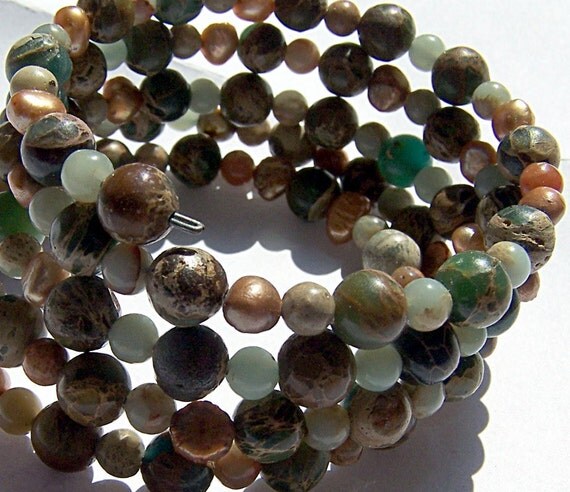 |
| Seafoam Pi Cuff |
I hope you all had a great pi day!
Tuesday, March 13, 2012
Pinterest Post!
I haven't had one of these in a while!
I love puns. I love sci fi. I love puns about sci fi.
Fibonacci squares tattoo? With the golden ratio? Yes, please.
No hatin', y'all.
Monday, March 12, 2012
Music Monday: I Am Woman
Coming fresh off the heels of my Slashdot Posters and Social Justice rant, here's everyone's favorite go-to feminist anthem.
All props to Helen Reddy, but Dusty Springfield and a horn section make this song.
All props to Helen Reddy, but Dusty Springfield and a horn section make this song.
Saturday, March 10, 2012
Science Saturday: Brian Cox, Science Rockstar
This one is an hour long, but Professor Brian Cox: A Night With the Stars is great. Professor Cox is like a cross between young Mick Jagger and young Carl Sagan and he demonstrates important concepts of quantum mechanics with ease and enthusiasm. Also, bonus points for celebrity experiment helpers.
The good: Professor Cox is an enthusiastic and gifted speaker, and he provides cogent and intuitive explanations of basic quantum concepts.
The bad: I wish it were longer!
One interesting fact: Not a fact as such, but the demonstration of the double slit experiment early on in the talk is the best explanation I've ever seen given about why the results of that are as important and intriguing as they are.
Would recommend? Heartily! But it's a long one, so hunker down with a blanket and some snacks.
The good: Professor Cox is an enthusiastic and gifted speaker, and he provides cogent and intuitive explanations of basic quantum concepts.
The bad: I wish it were longer!
One interesting fact: Not a fact as such, but the demonstration of the double slit experiment early on in the talk is the best explanation I've ever seen given about why the results of that are as important and intriguing as they are.
Would recommend? Heartily! But it's a long one, so hunker down with a blanket and some snacks.
Thursday, March 8, 2012
Slashdot Posters and Social Justice
This may be the most frustrating and personal post I have yet to put up on this little blog of mine. By the time I post it, I will have agonized over it for days, figuring out what to say and how to say it. There's a good chance it might not even see the light of day at all.
Already this is taking so long that I actually have to, like, stoke the fires of rage and get myself hyped up to rant about this. That's how important I think this issue is: I am intentionally working myself into a rage just so I have the energy to finish writing this post. It's a balancing act, though: enough rage to keep myself going, but not so much that I go into a table-flipping rage and start spewing vitriolic (if heartfelt) ad hominem attacks about classist neckbearded scum-sucking privileged white techie males.
(╯°□°)╯︵ ʇopɥsɐןs
Okay, got that out of my system. Cranking it down a couple hundred notches:
I'm a geek. And a nerd. Naturally I subscribe to a few appropriate news sources, most notably Slashdot. Every morning I get a digest of stories about video games, computers, Star Trek, technology, Linux, and anything else that may interest me. Sometimes the comments are even more entertaining and informative than the article.
Other times, though, the comments are a one-way ticket to Feminist Liberal Arts Student Freak-Out Land.
Unlike, say, about 70% of the most vocal posters on Slashdot, my academic background is firmly grounded in the liberal arts. Philosophy and English [Creative Writing], if you wanted to know. It's a field that is, to put it diplomatically, often misunderstand by the vast majority of the aforementioned Slashdot posters. In their view, they are doing something productive, useful, and actively contributing to society. They design websites, write programs, manage networks, and keep servers up and running. There is a tangible result of the work they do, and there is a direct link between their work and things like office productivity.
Not so with liberal arts kids. What we do mainly seems to consist of reading books, or otherwise consuming some sort of media, and writing about it. Or we read essays other liberal arts kids have written, and then write essays explaining either why they're right or why they're wrong. The usefulness and utility of such practices isn't exactly readily apparent, and arguably there's not really any use at all. The disorderly mix of post-graduate occupations you see among liberal arts majors, if nothing else, is indicative of the initial aimlessness and confusion of the typical liberal arts grad.
I mean, after I graduated, I continued to work in retail/tourism until I found a job teaching in South Korea, and after that I'm emigrating to Sweden to either continue teaching or (knock wood) finagle a position in the study abroad program I attended myself as an undergraduate—all while continuing to work on my jewelry, of course! There's nothing you can point to in my undergraduate career and say: "This is where Kokoba learned how to do this thing she's currently doing now in her job."
To a lot of the science and engineering types who populate Slashdot, this educational model is broken and suggests that we are a clueless and uninformed bunch of space cadets. What could we possibly have to contribute? If we can't even run our own lives, then how the hell can we know anything useful, or ever be right about anything?
As it turns out, we have a lot to contribute and we know lots of things. The things techies know improve our efficiency, our technology, our material things. The things we liberal arts kids know improve much less intangible things: our relationships to others, to our communities, and to our selves. Unfortunately, that gets maligned because we can't touch it or quantify it. It gets written off as frou-frou hippie feel-good bullshit. Too often techies are quick to paint people as simply unenlightened: if someone explained the logical solution to them, they would suddenly understand why SOPA is bad or why Ron Paul is the best available presidential candidate or whatever else.
Yet try to logically explain to these most vocal of Slashdot readers why there aren't more women in tech, or why racism still exists and still needs to be talked about, or why poor people have poor dietary choices, and you hit a giant wall of white male privilege.
"It's obvious that most women just aren't interested in tech."
"Barack Obama is president now, racism is over."
"Can't afford fresh fruit? Go to school and get a better job."
I wish these were exaggerations.
Techies, you're great at technology. Really, you're super smart at what you do. But what you do has really little relevance to any sense of social literacy. What I mean is: just because you know Perl doesn't mean you know about racism. Or feminism. Or classism. You know all of those hours you've spent tinkering with your computer or coding until the wee hours of the dawn? Liberal arts kids spent reading about colonialism, body policing, and the Other. The downside is that we can't use that knowledge to then build a tangible thing with immediate use and benefit to society.
Someone needs to write a book or design a course that's something like "Privilege for Techies," and then make it required reading (or a mandatory class) at every tech school in the country. Hubris, you guys: it's not just for the Greeks! Who knows, maybe some day I'll write that book. The closest I can think of is Stephen Jay Gould's The Hedgehog, the Fox, and the Magister's Pox, which is more about bridging the gap between humanities and the "older" sciences (biology, chemistry, etc) than the "newer" ones, but still relevant. Go, read it, and have a think over it.
Monday, March 5, 2012
Dumb Things From the Internet: Dewey Decimal Meme
Adorably appropriate, I'd say.
Katherine Koba's Dewey Decimal Section:
593 Marine, seashore invertebrates
Class:
500 Science
Contains:
Math, astronomy, prehistoric life, plants and animals.
What it says about you:
You are fascinated by the world around you, and see it as a puzzle worth exploring. You try to understand how things work and how you can make them better. You might be a nerd.
Find your Dewey Decimal Section at Spacefem.com593 Marine, seashore invertebrates
Class:
500 Science
Contains:
Math, astronomy, prehistoric life, plants and animals.
What it says about you:
You are fascinated by the world around you, and see it as a puzzle worth exploring. You try to understand how things work and how you can make them better. You might be a nerd.
Music Monday: Blue Monday
It's started to turn to spring showers here in Korea. While this is nothing compared to the torrential downpours of rainy season, even this little bit of rain does a real turn on your mood. Have some New Order for your daily dose of Music Monday.
Excuse me while I curl up under the blankets, put this on repeat, and read Doom Patrol.
Sunday, March 4, 2012
Picture Post: Hoeryong Temple
Despite feeling a bit under the weather today, I took the trail to Hoeryongsa just for the sake of doing something on the weekend that wasn't sitting at my computer or abusing my liver in a bar. It was a glorious day and a pleasant reminder that spring is coming soon.
Hoeryongsa itself is small; like I mentioned earlier, if you want breathtaking size and grounds you can get lost in, then somewhere like Bongeunsa or Bulguksa is more what you're after. As it stands, there's simply a main meditation hall, what I presume is living quarters, a pavilion for the bell, and public restrooms for the visitors. It looks like they're adding more buildings, as there was some construction going on. The buildings themselves are very new, having been rebuilt after they were burned down in the Korean War. I'm not sure if this is the kind of place that welcomes any random Mr. Kim to wander in and sit and meditate as he pleases (contrast Bongeunsa), so I just skulked around, got some pictures, and then sat on a nearby rock to enjoy the nice day.
One of the things I love about living in Uijeongbu is that it is greener and calmer than in Seoul. From my apartment, I can walk to the downtown neighborhood: shopping, Indian food, bars, a new performing arts center, people-watching, and the subway into Seoul. Or, I can walk to a Shilla-era temple set in the side of a mountain. How awesome is that?
Hoeryongsa itself is small; like I mentioned earlier, if you want breathtaking size and grounds you can get lost in, then somewhere like Bongeunsa or Bulguksa is more what you're after. As it stands, there's simply a main meditation hall, what I presume is living quarters, a pavilion for the bell, and public restrooms for the visitors. It looks like they're adding more buildings, as there was some construction going on. The buildings themselves are very new, having been rebuilt after they were burned down in the Korean War. I'm not sure if this is the kind of place that welcomes any random Mr. Kim to wander in and sit and meditate as he pleases (contrast Bongeunsa), so I just skulked around, got some pictures, and then sat on a nearby rock to enjoy the nice day.
Pyeonghwa-ro, the main drag that runs mainly parallel to subway line 1. Just to give a sense of where I started.
 |
| Temples all have freshwater springs for the visitors' use, but the one here at Hoeryongsa was dry. Not sure if it's just because the river is still frozen (see below), or if it's a permanent issue. |
Hoeryongsa itself.
 |
| In case you can't tell, "Korean War" has been crossed out, and "Japanese Regime" has been written on top. I'm not sure if that's supposed to be a factual correction, or a political sentiment. |
One of the things I love about living in Uijeongbu is that it is greener and calmer than in Seoul. From my apartment, I can walk to the downtown neighborhood: shopping, Indian food, bars, a new performing arts center, people-watching, and the subway into Seoul. Or, I can walk to a Shilla-era temple set in the side of a mountain. How awesome is that?
Saturday, March 3, 2012
Thursday, March 1, 2012
Geo-shopping: Black Onyx
A custom order from an Etsy teammate prompted me to go out and do some much-needed bead shopping! Yay! And this time, it involved a stone I haven't already written about: black onyx.
The word "onyx" comes from the Latin word onyx, meaning "claw" or "fingernail." As the story goes, while Venus (or Aphrodite) slept, a mischievous Cupid (or Eros) cut her fingernails as she slept and scattered them across the earth, where they turned into onyx.
Onyx is another cryptocrystalline (crystals so fine that they are hard to see even under magnification) member of the chalcedony family. Chalcedony, as you may remember from other geo-shopping adventures, is a silicate, meaning its chemical composition is silicon dioxide. It differs from quartz, perhaps the most common form of silicon dioxide, in that it contains both quartz and moganite (itself a silicate, though with a different crystal structure than quartz). You'll also recall that agates are a member of the chalcedony family as well.
Starting to notice a pattern yet?
Before we start to split hairs, let's back up and address a common misconception. People often think of onyx as being uniformly jet black, like so:
Pure black onyx is, then, rarely occurring in nature. Anything you purchase labeled "black onyx" has been "enhanced" (that is, dyed). It's been that way since Pliny the Elder's time, if not earlier. The same goes for sardonyx. Onyx is porous and takes a dye pretty easily, so sometimes you can see onyx in fantastic neon colors (usually in onyx carvings, not so much in onyx beads).
The word "onyx" comes from the Latin word onyx, meaning "claw" or "fingernail." As the story goes, while Venus (or Aphrodite) slept, a mischievous Cupid (or Eros) cut her fingernails as she slept and scattered them across the earth, where they turned into onyx.
Onyx is another cryptocrystalline (crystals so fine that they are hard to see even under magnification) member of the chalcedony family. Chalcedony, as you may remember from other geo-shopping adventures, is a silicate, meaning its chemical composition is silicon dioxide. It differs from quartz, perhaps the most common form of silicon dioxide, in that it contains both quartz and moganite (itself a silicate, though with a different crystal structure than quartz). You'll also recall that agates are a member of the chalcedony family as well.
Starting to notice a pattern yet?
Before we start to split hairs, let's back up and address a common misconception. People often think of onyx as being uniformly jet black, like so:
When in reality, natural onyx is extremely variegated in color, from milky white to dark gray to tan to olive green, and even red (when it's red, it's called Sardonyx).
A carved onyx dish that may easily be banded calcite, as banded calcite is often used as imitation onyx in carvings.
Even since ancient times, onyx and other stones have been stained to achieve a certain uniformity in, or richness of, color. Sometimes things as simple as leaving a piece out in the sun is enough to alter the shade and richness of the color in the stone. Other ancient techniques included oiling (soaking the rough gem in oil so as to reduce the visibility of fractions) and dyeing; these were all described by Pliny the Elder's Natural History. Even today, we still use heat treatment, oiling, and dyeing to enhance gemstones.
Pure black onyx is, then, rarely occurring in nature. Anything you purchase labeled "black onyx" has been "enhanced" (that is, dyed). It's been that way since Pliny the Elder's time, if not earlier. The same goes for sardonyx. Onyx is porous and takes a dye pretty easily, so sometimes you can see onyx in fantastic neon colors (usually in onyx carvings, not so much in onyx beads).
So how is onyx distinguishable from other members of the chalcedony family? Well, it has a slightly higher specific gravity (this means it's slightly denser). Cosmetically, the bands in onyx are generally more parallel and less chaotic than those in agates and other members of the chalcedony family, but that is often a judgment call. Gemstone names and categories aren't necessarily discreet boxes at all. They're much more akin to a continuum, or a spectrum. As the Earth's crust shifts and heats and applies pressures to stones over millenia, they change from one to another. Sometimes we find them in the middle of that change and pull them out of the process (ie, when we mine them from the crust).
But a rose by any other name would still smell as sweet, and how much does it matter if a stone has been altered? If it's rendered even more beautiful (and more importantly, more useful and more durable, which other enhancements made to gemstones), why not?
'Beautiful Black Onyx!' by Kokoba
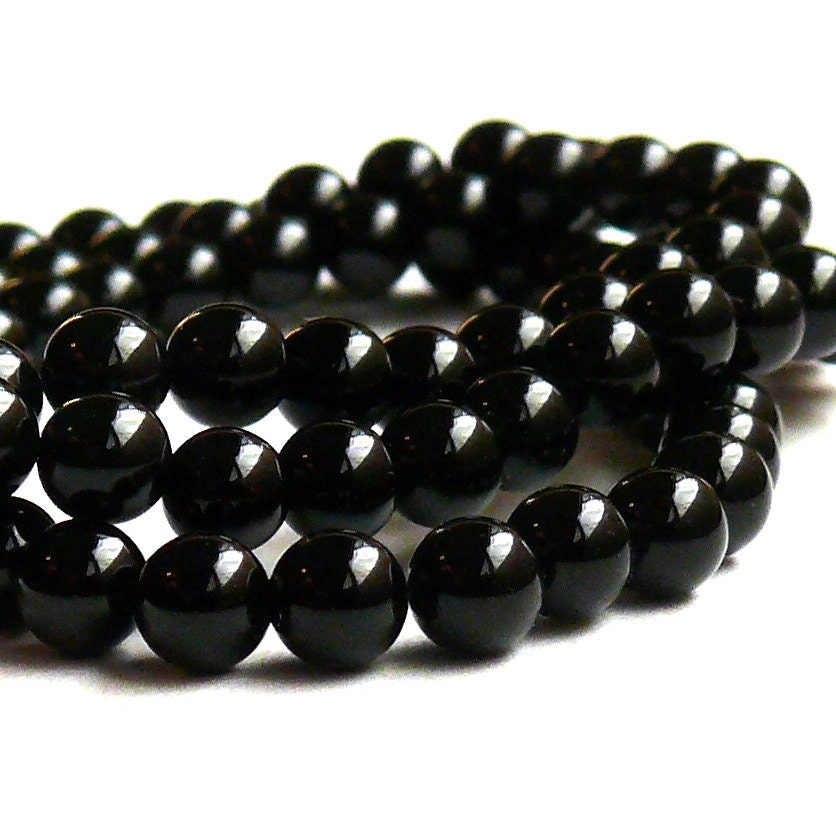
$3.20
| 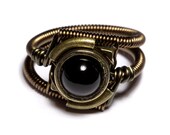
$35.00
|

$30.00
| 
$59.00
|

$65.00
| 
$195.00
|

$18.00
| 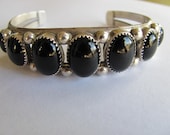
$124.50
|
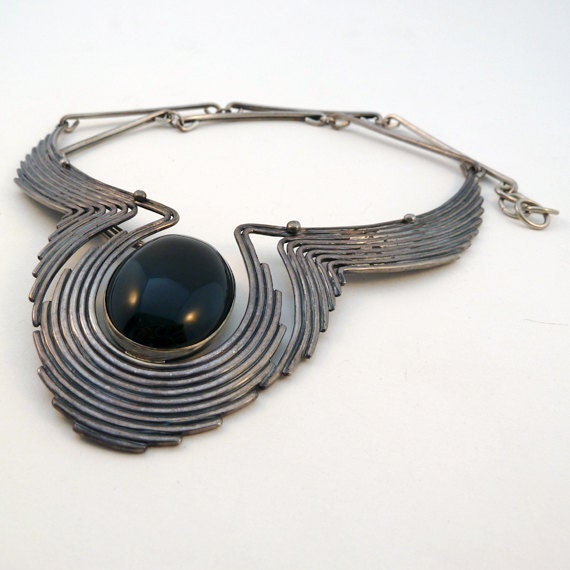
$278.00
| 
$12.50
|
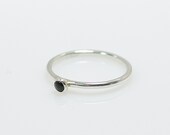
$22.00
| 
$155.00
|
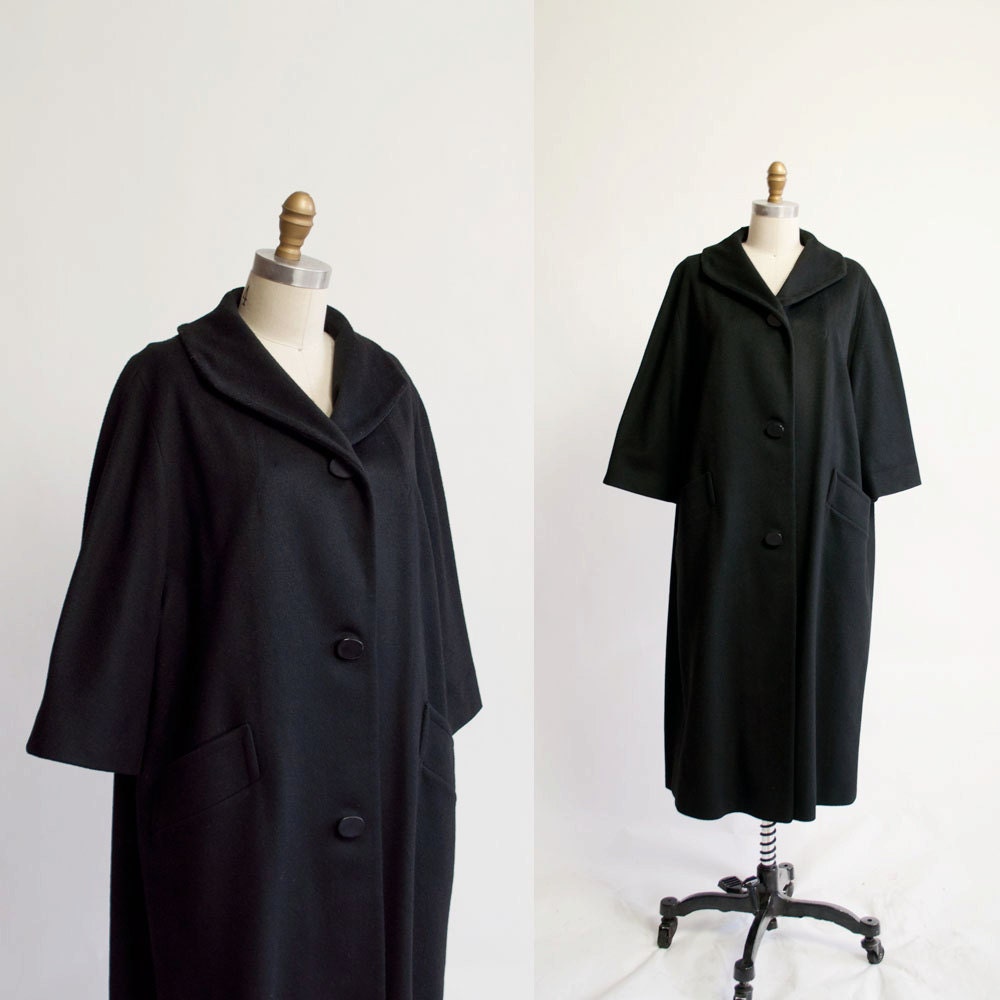
$65.00
| 
$18.00
|

$5.00
| 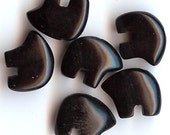
$4.25
|
You can read more about onyx at these sites:
Subscribe to:
Posts (Atom)



